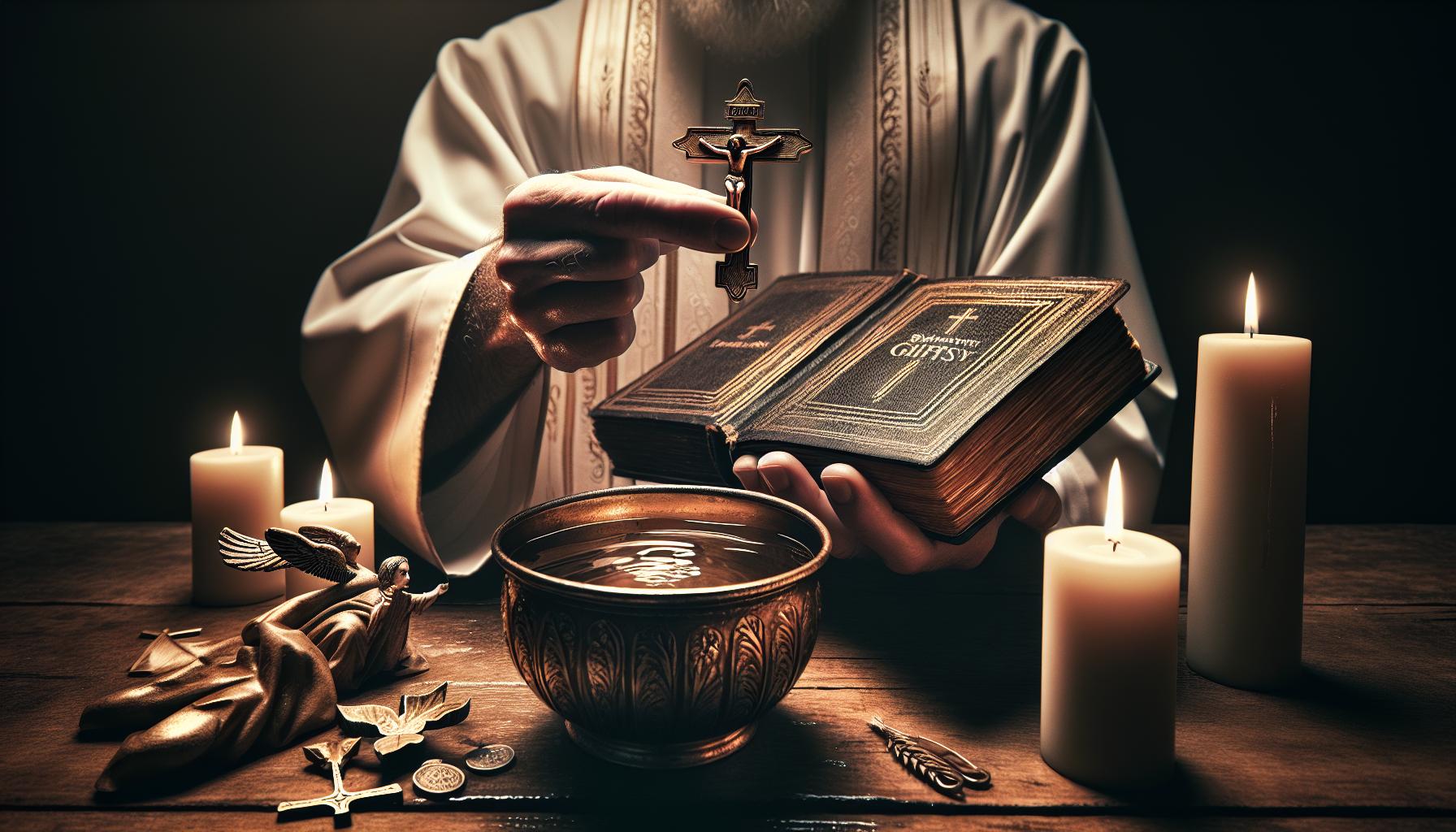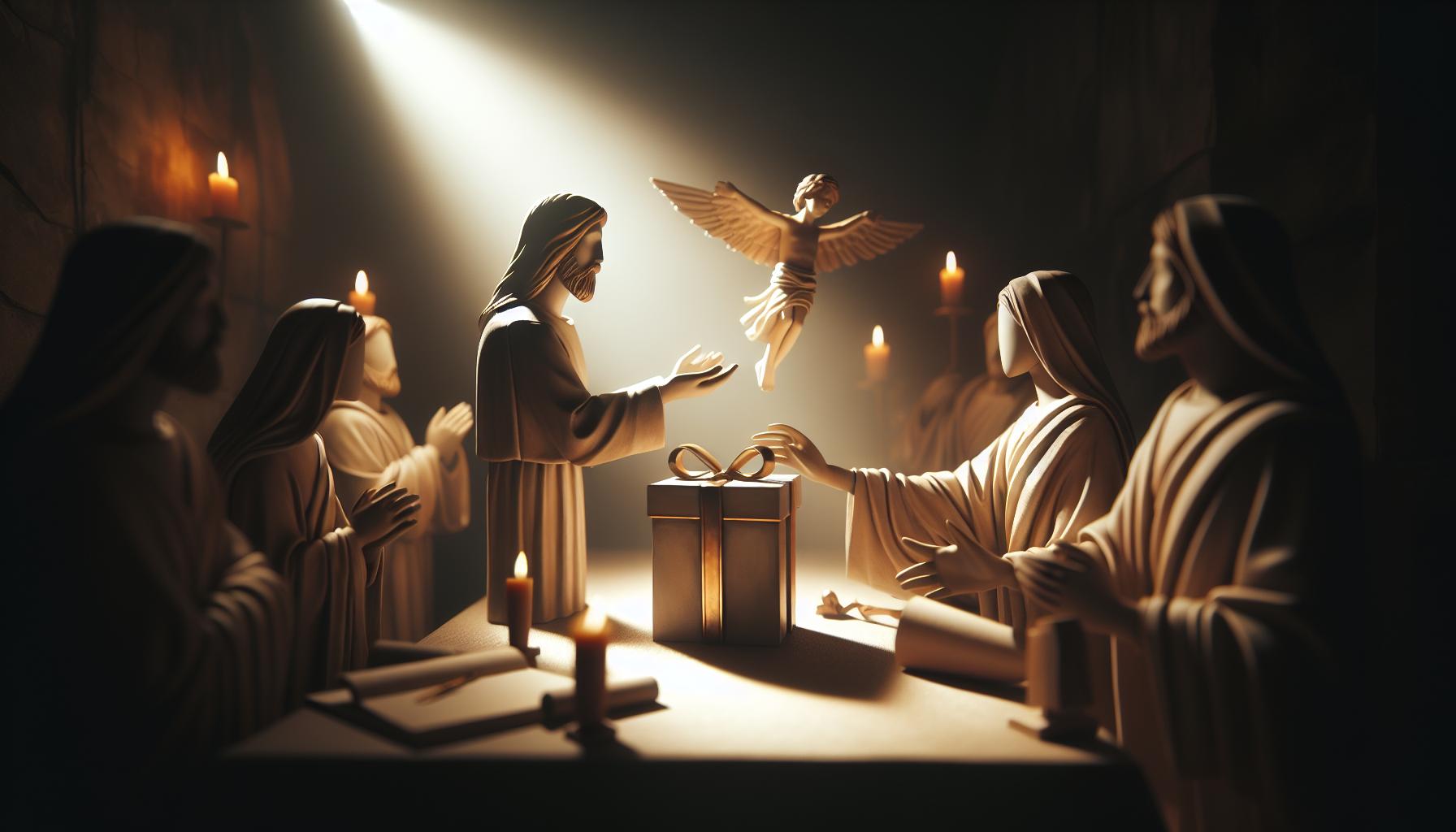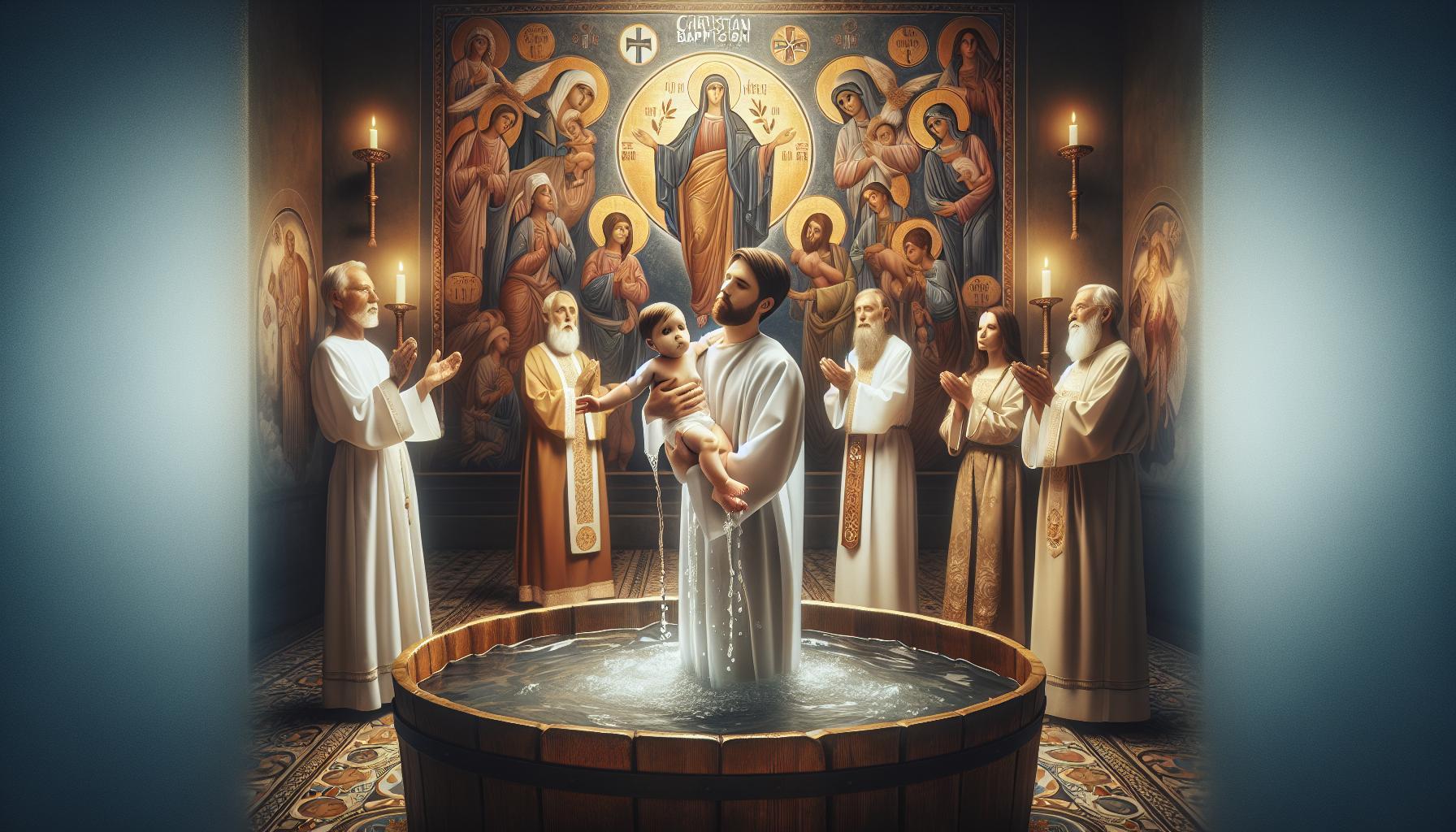Navigating the appropriate monetary gift for a baptism can be challenging, as expectations often vary greatly based on personal relationships and cultural norms. Understanding these dynamics is essential, as a thoughtful contribution reflects your support for this significant milestone in a child’s spiritual journey. This guide offers insights into how much to give, ensuring your gift is both meaningful and appropriate.
Understanding the Significance of Baptism Gifts

The act of giving gifts during a baptism is steeped in tradition and sentiment, reflecting the importance of this significant life event. Baptism serves not only as a religious rite of passage but also as a celebration of community and family. When selecting a gift, whether it be monetary or a tangible item, the focus should be on the meaningful connection it represents. Gift-giving in such contexts is an opportunity to express love, support, and congratulations to both the child and their family.
When considering how to approach this, it’s essential to understand the deeper significance behind the gifts. Friends and family often use this occasion to impart wisdom or blessings that the child may cherish as they grow. Meaningful gifts can range from religious symbols, like crosses or prayer books, to more personal items, such as handmade blankets or keepsake boxes. For instance, presenting a child with a custom name plaque or a beautifully illustrated Bible can serve as a lasting reminder of their baptism day.
In terms of monetary gifts, the amount can vary widely based on several factors, including your relationship with the family and your own financial circumstances. As a guideline, contributions typically range from $25 to $100, with closer relationships warranting higher amounts. This financial support not only helps cover the costs associated with the baptism but also acknowledges the joyous nature of the event. Remember, the value of the gift is ultimately not measured by its price tag, but by the thoughtfulness and intent behind it.
It’s also important to recognize that the context in which the baptism is held may influence your decision. A grand event may suggest a more substantial gift, while a more intimate gathering might allow for a smaller token of appreciation. Ultimately, the best approach is to give what feels right to you, ensuring that your gift reflects your genuine best wishes for the child’s journey ahead.
Factors to Consider When Choosing a Baptism Gift Amount
When considering how much to give for a baptism, it’s crucial to understand that the amount can vary greatly based on several factors, including personal relationships, cultural expectations, and financial capabilities. Baptisms are significant milestones, and the gift should reflect your sentiment and intention to celebrate this special occasion.
Relationship to the Person Being Baptized
The closer your relationship is with the child or their family, the more you might lean toward a larger gift. For instance, if you are a grandparent or godparent, a more significant monetary contribution can be appropriate, whereas if you’re a family friend or distant relative, a smaller amount suffices. Additionally, the nature of your relationship can guide your choice between a monetary gift and a thoughtful keepsake.
Age of the Person Being Baptized
The age of the child can also influence your gift decision. Generally, gifts for infants might be smaller in monetary value, focusing on sentimental items like personalized books or keepsakes, while gifts for older children could be more substantial, such as money for a college fund or educational gifts. This way, you not only honor the occasion but also contribute to the child’s future.
Cultural and Religious Expectations
Different cultures and religious traditions often have their own expectations and norms for baptism gifts. It’s beneficial to consider these when making your decision. For instance, some cultures might place a strong emphasis on cash gifts, while others might value handmade or religious items. Understanding these nuances can help you make a more meaningful contribution and show respect for the family’s traditions.
Your Budget
Ultimately, your budget plays a critical role in determining how much money to give for a baptism gift. It’s essential to give an amount that feels comfortable for you while still being thoughtful. There’s no fixed figure; however, many suggest a range of $20 to $150 for cash gifts, depending on your closeness to the family and your financial situation. Remember, it’s the thought and intention behind the gift that truly counts, so choose an amount that reflects your genuine support and love for the family during this joyous occasion.
In sum, by evaluating these factors—your relationship, the child’s age, cultural and religious expectations, and your budget—you can thoughtfully decide on an appropriate amount for a baptism gift that honors both the child and their family.
Traditional Guidelines: What Do Others Typically Give?

The selection of a baptism gift often blends tradition with personal sentiment, making it a memorable gesture for the family. When considering what others typically give, it’s helpful to remember that gifting at baptisms varies worldwide, yet certain practices remain prevalent in many cultures.
Common Gift Types
Traditionally, monetary gifts are a common choice, with amounts typically ranging from $25 to $100, depending on your relationship with the family. Close family members, such as grandparents or godparents, may opt for higher amounts. Along with cash, tangible gifts also carry sentimental value. Some enduring options include:
- Silver Spoon or Cup: Historically regarded as a classic baptism gift, these items are often engraved with the child’s name.
- Personalized Items: Gifts like custom blankets or toys that feature the child’s name create a lasting keepsake.
- Religious Symbols: Items such as crosses, rosaries, or prayer books resonate deeply within the context of a baptism.
Preparedness and Timing
In addition to gift type, consider when and how to present your gift. While it’s common to give cash during the baptism reception, physical gifts are often presented either during the ceremony or at the related celebrations afterward. Ensure your gesture aligns with the family’s customs; some may appreciate a private gift-giving moment, while others might prefer a more public acknowledgment.
Understanding Cultural Influences
The choice of baptism gifts can be heavily influenced by cultural customs. For example, in some cultures, it’s not uncommon for guests to provide gifts for the entire family, while others may focus solely on the child. Being aware of these subtle differences can ensure that your gift is well-received and appreciated.
Ultimately, the essence of selecting a baptism gift lies in your thoughtfulness and connection to the family, making your presence and gesture meaningful in celebrating this significant milestone in their lives.
The Role of Family and Close Relationships in Gift-Giving

Gift-giving holds a unique and significant place in the dynamics of family and close relationships. This tradition not only fosters connections but also serves as a powerful way to express love and support during important life events, such as baptisms. The exchange of gifts can reflect shared values and strengthen familial bonds, creating lasting memories that resonate throughout a lifetime. Understanding the nuances of giving within these close relationships is crucial, especially when deciding on appropriate amounts for special occasions, as discussed in the context of baptism gifts.
Understanding Emotional Connections
When family members or close friends give gifts, particularly for meaningful events like baptisms, the act often symbolizes more than just a material exchange. Gifts can convey deep emotional ties and signify the giver’s genuine wishes for the recipient’s happiness and well-being. Not only does this act of giving stand as a testament to the relationship, but it can also reinforce the idea of commitment and shared experiences. Thoughtful gifts often become cherished mementos, embodying memories that can be looked back upon with affection.
Guidelines for Baptism Gifts
Determining how much money to give for a baptism gift can be influenced by various factors, including your relationship to the child and their family and your own financial situation. Here are a few considerations:
- Immediate Family: Members of the immediate family, such as parents or grandparents, may choose to give a larger sum, often between $100 to $500, depending on their circumstances.
- Close Friends and Extended Family: For close friends or extended family, a range between $50 to $100 is typically seen as appropriate. This amount still conveys thoughtfulness without overspending.
- Group Gifts: Consider coordinating with other family members or friends to give a more substantial group gift. This method allows for a larger item or a more significant cash contribution.
- Personal Touch: Remember, a thoughtful note or handmade gift alongside monetary contributions can elevate the personal sentiment behind the gesture.
Creating Lasting Memories
Ultimately, gift-giving in families serves to celebrate key moments in life and fortify relationships through shared values and experiences. Rather than merely focusing on the monetary value, the essence of your gift can be accentuated through personalization and creativity. The best gifts often reflect an understanding of the recipient’s needs or interests, showcasing the care and thought behind the gesture. By prioritizing heartfelt intentions—whether through financial contributions or unique gifts—families can ensure that their celebrations, such as baptisms, are memorable and emotionally meaningful.
Creative Gift Ideas Beyond Monetary Contributions
When it comes to meaningful gifting, especially for significant occasions like a baptism, it’s essential to think outside the envelope. While monetary gifts are common and appreciated, there are numerous creative alternatives that can convey your heartfelt intentions without relying solely on cash. By focusing on personalized and thoughtful contributions, you can create lasting memories for the family and child involved, enriching the experience of their special day.
Personalized Keepsakes
Consider giving a customized keepsake that honors the baptism moment. Items like a personalized storybook, where the child’s name is woven into a narrative, can make for a treasured gift. Engraved bracelets or necklaces featuring the date of the baptism, or even the child’s initials, serve as enduring mementos. Each time they wear or see the item, it will remind them of their special day and the loved ones who celebrated it.
Handmade Gifts
Handmade gifts offer a unique touch that store-bought items often lack. If you have crafting skills, think about creating a baby quilt, or a hand-knitted item such as a sweater or blanket. These gifts not only carry the warmth of your effort but can also become family heirlooms. Alternatively, a scrapbook filled with well wishes from family and friends, along with additional space for future memories, can be a delightful addition to a child’s keepsake collection.
Charitable Contributions in the Child’s Name
Instead of traditional gifts, consider making a donation to a charity that aligns with the family’s values in the child’s name. This can represent a beautiful sentiment, instilling the importance of giving back from a young age. You might choose a local charity, or even better, one that reflects the family’s interests or experiences.
Experiential Gifts
Gift-giving can also take the form of experiences. Organizing a day out for the family, such as a visit to a zoo, children’s museum, or an amusement park, can create cherished memories. Alternatively, consider gifting a family membership to a local attraction, providing them the opportunity to explore together throughout the year.
Embracing these creative gift ideas showcases thoughtfulness and can make a significant impact, proving that it’s the sentiment behind the gift that truly matters. Whether it’s through a crafted item, a shared experience, or a charitable act, your gift will undoubtedly resonate well beyond the baptism day and into the future.
Navigating Cultural Differences in Baptism Gift Practices
Baptisms are significant communal events steeped in profound spiritual meaning, yet the customs surrounding gift-giving vary widely across cultures and denominations. Understanding these differences can enrich the experience for both the giver and the recipient, fostering deeper connections and respect for diverse traditions. The question of *how much money to give for baptism gifts* might initially seem straightforward, but cultural nuances can greatly influence expectations and appropriateness.
Recognizing Cultural Variations
In many Western cultures, baptism gifts often lean towards tangible items that hold religious significance. Common gifts include Bibles, religious art, or decorative crosses. However, in other cultures, monetary gifts might be preferred, with the expectation of using the funds for future spiritual needs or educational purposes. For instance, in some African and Asian communities, giving cash can symbolize support for the child’s future, reflecting values placed on education and community wealth distribution.
Gift Etiquette Across Denominations
Different Christian denominations also exhibit unique practices regarding baptism gifts. In Catholic traditions, for instance, it’s common to gift items such as rosaries or silver crosses, while in Protestant settings, personalized or practical gifts, like a children’s prayer book or a custom-engraved item, may be more favored. Understanding these denominational nuances can guide you in selecting an appropriate gift while remaining respectful of the family’s faith and traditions.
Balancing Generosity and Thoughtfulness
When contemplating *how much money to give for baptism gifts*, it’s essential to consider your relationship with the family and the local social norms surrounding gift-giving. Here’s a simple table to help guide your decision:
| Relationship to Child | Traditional Gift Amount | Common Gift Ideas |
|---|---|---|
| Close Family Member | $50 – $100 | Religious books, keepsake items |
| Friend or Acquaintance | $25 – $50 | Cash gifts, cards with personal notes |
| Colleague or Distant Relative | $10 – $25 | Candle, small religious symbols |
Ultimately, the best approach is to combine thoughtfulness with cultural sensitivity. Being aware of the family’s specific traditions and preferences can help ensure that your gift, whether monetary or tangible, is received with joy and appreciation.
How to Personalize Your Gift to Honor the Occasion
When selecting a baptism gift, honoring the occasion with a personal touch can create a lasting impression. Personalization transforms a standard gift into a cherished keepsake, making it memorable for both the recipient and the family. From engraved items to custom artwork, there are countless ways to customize your offering, enhancing the emotional significance of the gesture.
Types of Personalized Gifts
Consider various types of gifts that can be tailored to suit the occasion:
- Engraved Keepsakes: Items like jewelry, pocket watches, or cross pendants can be engraved with the child’s name or baptism date.
- Custom Photo Frames: A decorative frame with the child’s name and baptism date can hold a cherished photo from the event.
- Personalized Books: Storybooks that incorporate the child’s name into the narrative make for a fun, unique gift.
- Specialized Blankets and Clothing: Items like baptism gowns or swaddle blankets can be embroidered with personal messages or symbols.
These options not only serve as thoughtful gifts but also help to commemorate the significant milestone of baptism in a tangible way.
Incorporating Meaning
To further personalize your gift and make it meaningful, consider the family’s values and traditions. For instance, if the family follows a particular spiritual path, a personalized Bible or prayer book can be an excellent choice. Additionally, items that reflect the child’s cultural heritage or family customs can add an extra layer of thoughtfulness.
Practical Steps to Personalization
Here are some actionable steps to effectively personalize your baptism gift:
- Choose the Right Item: Select a gift that resonates with the family and fits the occasion.
- Research Personalization Options: Look for reputable stores that offer customization services, whether online or local.
- Plan Ahead: Allow enough time for the personalization process, as some items may require several weeks for customization.
- Include a Personal Message: Along with the gift, consider writing a heartfelt note that expresses your wishes for the child’s future.
By following these guidelines, your gift can meaningfully honor the baptism occasion, reinforcing the bond between you and the family while creating a memento that can be cherished for years to come.
Frequently asked questions
How much money should I give for a baptism gift?
The appropriate amount for a baptism gift can vary but generally ranges from $25 to $100. It’s vital to consider your relationship with the family and your budget.
This gift is a way to show love and support for the child and their family. Many people choose to give money as a thoughtful gesture alongside a personal note. For more personalized ideas, explore classic baptism gifts that can complement your monetary contribution.
Can I give a gift instead of money for a baptism?
Yes, giving a physical gift is perfectly acceptable at a baptism. Many parents appreciate keepsakes like personalized items, children’s books, or religious symbols.
The best gifts reflect the child’s future and family values. A lovely baptism gift can serve as a treasured memory of this significant day. For suggestions on meaningful gifts, visit our comprehensive guide on baptism gift ideas.
What is the etiquette for giving baptism gifts?
Baptism gift etiquette suggests giving a gift during the reception after the ceremony. It is not mandatory for guests to bring gifts, but it is a common practice to show support.
Offering a gift demonstrates your respect for the family’s religious customs and provides a way to celebrate the child’s special occasion. Remember, your presence alone conveys your appreciation for the family and their traditions.
Why is giving money for a baptism significant?
Giving money as a baptism gift symbolizes love, support, and congratulations for the family. It allows parents to choose something meaningful for their child.
This gesture often carries more sentiment than the gift’s monetary value. When selecting an amount, consider the family’s culture and your relationship with them to ensure your gift is appropriate.
What types of personalized gifts are appropriate for a baptism?
Personalized gifts are highly valued for baptisms and can include engraved photo frames, custom blankets, or baptismal certificates. These items create lasting memories.
Such gifts illustrate thoughtfulness and demonstrate a connection to the child’s milestone. Choosing a personalized item reflects your consideration of the family’s values and the importance of the occasion.
How much should godparents give for a baptism gift?
Godparents may want to give a more substantial gift, typically in the range of $50 to $150, reflecting their special role in the child’s life.
The amount ultimately depends on the godparent’s relationship with the family and personal circumstances. A thoughtful gift from a godparent can greatly emphasize their commitment to supporting the child’s spiritual journey.
Can I combine money with a personal gift for a baptism?
Absolutely! Combining money with a personal gift is a thoughtful way to celebrate a baptism. This approach allows you to convey both support and a meaningful keepsake.
A small cash amount along with a carefully chosen gift can provide the family options on how they wish to commemorate the occasion. This combination reflects both generosity and personalization, making the gift more special.
What is the best way to present a baptism gift?
The best way to present a baptism gift is by giving it at the reception following the ceremony. It is often done with a card expressing your wishes for the child.
Ensure your card includes warm wishes congratulating the family on their child’s baptism. Presenting the gift in this manner shows respect for the event and allows for a personal connection with the family.
In Conclusion
In concluding our exploration of appropriate monetary gifts for baptisms, it is essential to remember that the intention behind the gift often carries more weight than the amount itself. While various traditions suggest different monetary ranges, the focus should always be on the sentiment of generosity and support for the family and the important spiritual milestone they are celebrating.
Consider your relationship to the individual being baptized, as well as your own financial circumstances, as these factors can guide your decision. Additionally, thoughtful alternatives to money, such as personalized keepsakes or service-oriented gifts, may also demonstrate your love and support.
We encourage you to delve deeper into the rich traditions surrounding baptism. Whether you choose to give a memento that reflects personal faith or represent a shared journey in spirituality, each gesture is a meaningful part of this cherished rite. For further insights on crafting the perfect baptism gift, exploring various traditions, or understanding the sacramental significance, we invite you to continue your journey of discovery. Your engagement not only supports the individual being baptized but also enriches your own understanding of these sacred customs.





